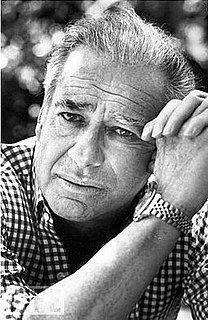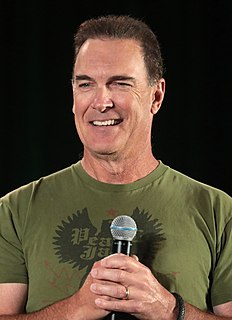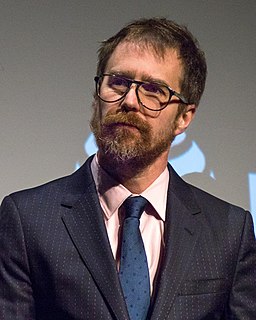A Quote by John Frankenheimer
I think all great actors - and I don't classify myself as one of them, incidentally - but I think all great actors listen well and I've learned that from a lot of the very good actors with whom I've worked - to really listen to what people say.
Related Quotes
There are some actors that are great stars and storytellers, but not necessarily good actors. I'm talking about some - not all - of the people you see in action flms or blockbusters. They're film stars, though not necessarily great actors. And there are those who are great actors, but not necessarily big film stars. Jim Sturgess is both. He's quite obviously a star, the audience likes him, he's a great storyteller and he turned out to be one of the greatest actors I've worked with as well.
I'll say it, I love working with actors, I'm a fan of actors. They bring so much, and they can also break a movie, but when it works I give it all to the actors. I'll say it, I think that 'The Transporter' is great not because of my direction, it really is great because Jason Statham was great in it.
Actors, I think, are all the same. Both Korean actors and American actors are all very sensitive people, and they are all curious to know what the director thinks of them and how they are evaluated, and they try to satisfy the director. And they like it if you listen carefully to their opinions and accept them.
When I got into the movie business, working with actors was the one thing I was really weak at. I didn't know what to say to actors. They scared me and intimidated me. The actors that I've worked with who have had a lot of experience, or who I've even grown up watching as a kid, were really scary. I was like, "What am I going to say to this person?" But, I've matured. It's fun. I understand what actors do now.
Comedians work great as actors because they're good under pressure. With a lot of actors, you have to make them feel like everything's going really well to get a good performance out of them. But, if you have a comedian on the set, you can tell them, 'Hey, you really are screwing this up,' and then they just get better.
I think that for a lot of actors - especially American actors - to get line readings and to be told and have your director literally act out the part for you is sort of discouraging in a way. It's a very Eastern European thing to do - a lot of directors that I worked with in Russia did that as well. And, I never took that as an insult, as many actors tend to do. To me, I think it's just offering a certain energy - offering their flavor - and, instead of trying to sort of decode and communicate it to you, they just show you their flavor of what it should be.
I think the key that differentiates the good actors from the mediocre ones that are still trying to come up, is that the good ones know how to listen. It's like being in a jazz band. They know how to listen to what the other musicians are playing. And where to come in and where to sit out. That's my approach to being in an ensemble cast and working with any kind of actors in a scene.
I learned a lot from Clint [Eastwood], who's an extremely economic director. I learned a lot from Michael Winterbottom, who really gave a lot of trust in the actors and allowed them to live in the space instead of trying to manipulate and make it too set and too staged. Working with [Robert] De Niro taught me a lot of being an actors' director and what that is. I've learned a lot from pretty much everybody. Hopefully I've picked up something from everybody I've worked with.
People are very uncomfortable when you call actors artists because there are a lot of actors out there that aren't artists - there are a lot of actors that are hired for very specific reasons that are shallow and have to do with sexual currency and what the industry thinks sells. Real actors are artists, they're expressionists.






































